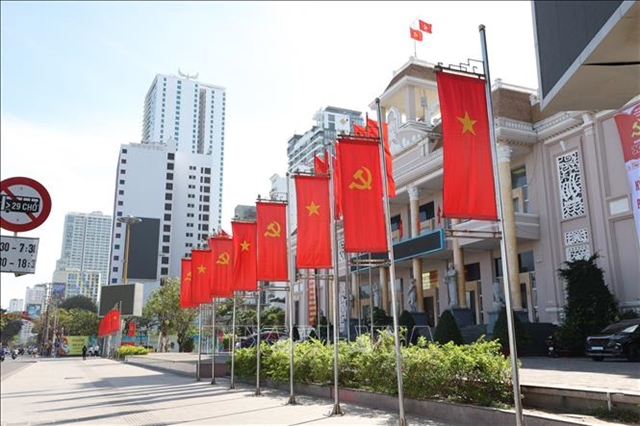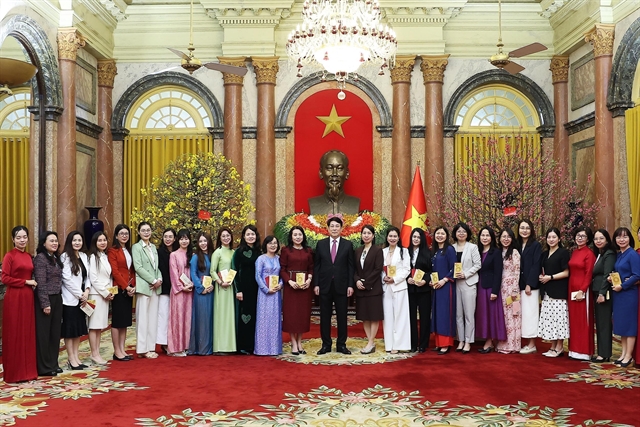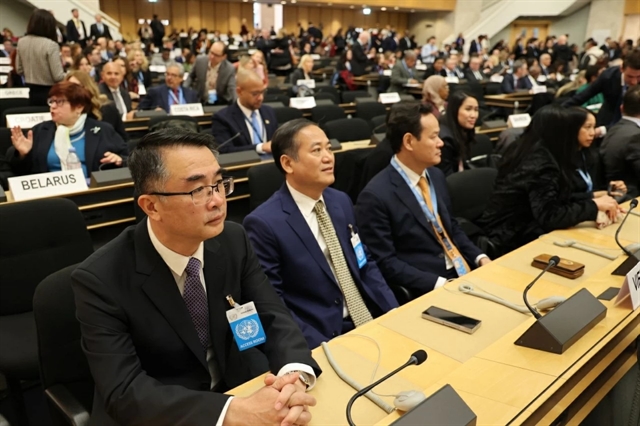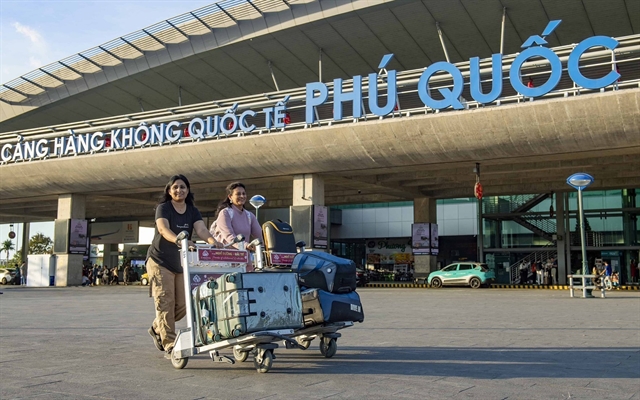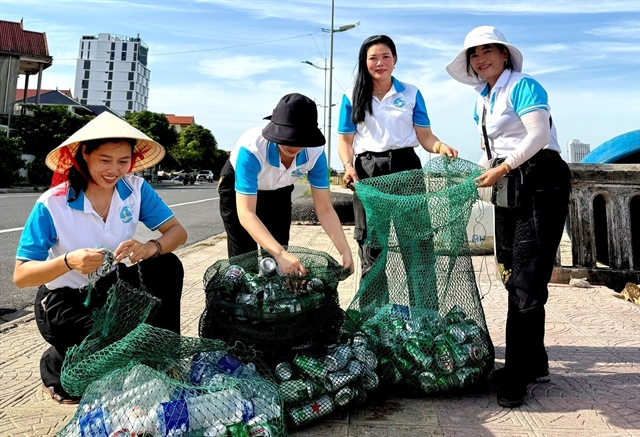 Environment
Environment

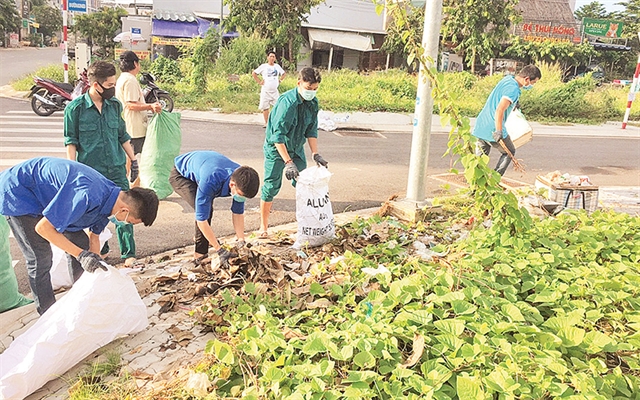
|
| Youth union members and residents in HCM City’s District 9 work together to clean city streets. — Photo nhandan.com.vn |
HCM CITY — HCM City has reached 12 of its 16 targets in its pollution reduction programme for the 2016-20 period, according to the city’s Department of Natural Resources and Environment.
With the largest population in the country, the city is the nation’s economic locomotive but is facing many challenges, including pollution. About 1,300 factories in 18 industrial parks and 3,000 small- and large-scale production establishments outside industrial parks operate in the city.
Despite this, the city had achieved positive changes in environmental protection activities, Nguyễn Toàn Thắng, department director, said.
Under the five-year programme, the city is focusing on preventing air pollution and managing air quality as well as surface water, ground water and waste.
The city regularly dredges and collects waste, water hyacinth and wild grass, helping clear the flow of water and improve hygiene.
Authorities also strictly punish anyone who dumps rubbish in unauthorised areas such as sidewalks, roads or the drainage system.
The number of industrial establishments treating discharged wastewater has increased to 97 per cent from 85 per cent, with 99 per cent of the total volume of wastewater treated.
Ninety-eight per cent of industrial establishments invest in a gas treatment system or use clean fuels (electricity, Diesel Oil and compressed natural gas). And all hospitals in the city have set up wastewater treatment systems.
The rate of renewable energy usage has reached about 1.8 per cent, more than 0.06 per cent in excess of the target for the period.
Software is also being used to keep track of violations concerning urban order, raising the rate of resolved complaints.
“Making people more aware of classifying garbage at source has been one of the significant breakthroughs in this period,” Thắng said.
Residents have reduced their use of plastic bags and changed their habits by using more environmentally friendly products.
The city has built and put into operation three new plants using advanced technologies that generate electricity from waste.
Solid waste collection, transportation and treatment have been done in a timely fashion, and have eliminated the waste backlog situation.
“Many pollution hot spots in the city have been resolved completely,” Thắng said.
The city has reduced 715 of 747 waste backlog locations causing environmental pollution, reaching 95.7 per cent of all of these areas.
It has also installed additional 34,000 rubbish bins and 28,000 surveillance cameras to detect violations relating to littering in public.
Support from residents
More than 2,000 working models on reducing environmental pollution have been implemented in the city.
By May, 190 wards, communes and towns had been recognised as localities that were not littering on streets and in canals, reaching a rate of 59 per cent.
Nguyễn Văn Thương, head of Residential Quarter 4 in District 9’s Tăng Nhơn Phú A Ward, said that pollution hot spots and indiscriminate dumping of garbage had been reduced by more than 70 per cent. This was a result of strict punishment and public awareness activities.
“The city’s policies on environmental protection are very practical, so these activities have received strong support from local residents,” he said.
People of all ages, including youth union members, students, armed forces, the retired and the elderly, have participated in environmental protection activities, he said.
The city People’s Committee has ordered local authorities at all levels to increase information dissemination about regulations related to environmental protection and climate-change response at schools, workplaces and residential areas.
Residents, particularly students and migrant workers, should be encouraged to change their daily habits to support environmental protection activities, such as saving water, using solar batteries, and limiting the use of plastic bags and extracting groundwater.
The city will step up inspections and strictly handle violations concerning environmental protection regulations.
Support policies will be created to encourage businesses to use eco-friendly bags and private garbage collectors to join co-operatives or public garbage-collection companies. Additional incentive policies to attract investment in wastewater treatment plants in the city will also be developed. — VNS

